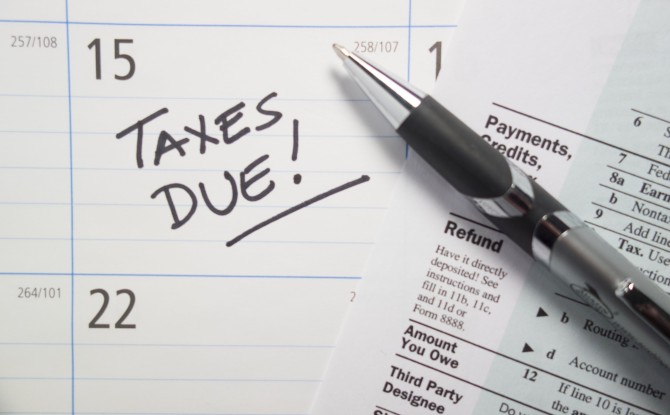As April 15 nears, many Americans began to feel a growing sense of dread. For small business owners, especially new ones that haven’t experienced a tax process before, it’s best to ask for help — and, at this point, some extra time. Here’s a look at some last-minute tax tips.
Hire an expert
There’s a big difference between doing your own taxes when you’re a young professional, when it’s a relatively simple process, and when you’re a small business owner. A new business will mean an onslaught of details and potential deductions. So, it’s time to call in the pros. Matthew Toren makes that suggestion in a story for entrepreneur.com.
“Seriously, there is no excuse for not hiring a tax professional to file your taxes, and that means your personal taxes, too,” writes Toren. “A professional is going to help you with way more than filing alone. First, discussing your personal taxes and helping them understand that connection to your business taxes is going to help you gain a strategic planning partner. Second, they’re going to know all the applicable laws, regulations and proper deductions. That will save you money on deductions and if applicable, tax refunds, but is also going to prevent you from making incorrect deductions and costly mistakes. Finally, a tax professional will be able to give your taxes the second look they need before filing that will keep them accurate and error-free.”
Get an extension
It’s not terribly realistic to stroll into a tax professional’s office at this point with a thick stack of papers and expect a speedy return process. Think of all the people who got there before you, and how you’re now at the end of the line. So with less than a week to go before the deadline, the first order of business for the professional will likely be filing for an extension. The good news is that the process isn’t an overly difficult one. Barbara Weltman explains in a recent article on smallbiztrends.com.
“A filing extension is automatic,” writes Weltman. “You get it simply by asking the IRS for it. The only catch is that you must file the request for an extension by the deadline you’re expected to meet for filing your return. Businesses that make a filing request have until Sept. 15, 2015 (Oct. 15, 2015 for Schedule C filers) to submit this year’s returns.”
Honesty, always
Any temptation to bend the truth on your taxes should be ignored. Flick that little red devil right off of your shoulder, and listen to the angel on the other side (or just your tax adviser). Though it can be an unpleasant process, and the results may not be what we want, risking penalties later will be even worse.
“This is the easiest piece of advice out there, but for some reason during tax time we all want to slip into the gray area,” writes Toren. “Just stay honest. Don’t try to get creative with your accounting and keep it straightforward and you shouldn’t have any problems. Another great thing about a tax professional is they can help keep you and your tax filing on the straight and narrow. It’s tempting to want to maximize your tax breaks and even tax refunds, but never make a claim that would affect your integrity. It’s just not worth it.”
Remember the frenzy
The stress of getting taxes done right up until the deadline is likely something most small business owners would not want to endure every year. So they would be smart to learn from their tardy approach and fix it next year. As Issie Lapowski writes for inc.com, getting ahead is the best policy.
“Having an accounting system to keep things accurate and organized does you no good if you’re waiting until the last minute to put your records in the system,” writes Lapowski. She quotes Lynn Conover, a tax partner at The Curchin Group in New Jersey: “Many small business owners, especially single owners who are the chief cook and bottle washer, don’t have the time to keep their books on an ongoing basis, but if they can, they should. If they can’t, they should employ someone who can. They should always keep a pulse on their business.”

